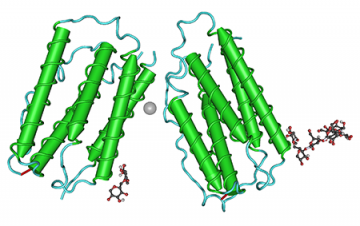Research
Concussions loosen insulation around brain cells
By bkladko | September 4, 2018
The loosening was detected two weeks post-concussion, when the players said they felt fine and were deemed ready to play.
Even the fittest middle-aged athletes can’t outrun cardiovascular risk factors
By bkladko | August 31, 2018
UBC researchers found significant cardiovascular disease in 11 per cent of masters athletes — individuals aged 35 and older who do moderate to vigorous physical activity at least three days a week.
Hot yoga can make an athlete’s heart more efficient
By bkladko | August 29, 2018
A “slingshot effect” explains why athletes’ plasma volumes increased after several days of hot yoga.
Gut enzymes could hold key to producing universal blood
By bkladko | August 27, 2018
The researchers, including Jay Kizhakkedathu, sampled DNA from millions of microorganisms found in environmental samples—a technique known as metagenomics.
B.C. initiative linked to reduced rates of shaken baby syndrome
By bkladko | August 13, 2018
The Period of PURPLE Crying program is associated with a 35 per cent reduction in infants and toddlers admitted to B.C. hospitals with shaking-related injuries.
Sugar-like molecule points to new therapeutic path for autism and schizophrenia
By bkladko | August 9, 2018
Heparin sulfate, when bound to neurexin, a key synaptic protein, creates a sort of scaffold, strengthening neuronal connections.
The sun should not set twice before hip fracture repair
By bkladko | August 7, 2018
A UBC-led study projects an additional 11 deaths for every 1,000 hip fracture surgeries if all surgeries in medically stable patients were done after inpatient day 3 instead of admission day.
UBC bestows national prizes on Canadian health science pioneers
By bkladko | July 26, 2018
Andrew Krahn, Bruce McManus, Kullervo Hynynen and Martin Gleave are being honoured for their accomplishments in heart health, brain health and cancer.
Genetic marker could spare MS patients from liver damage
By bkladko | July 16, 2018
The marker illustrates the potential power of precision medicine.
A constellation of symptoms presages first definitive signs of multiple sclerosis
By bkladko | July 15, 2018
Five years before classic MS symptoms appear, people are up to four times more likely to be treated for nervous system disorders.









